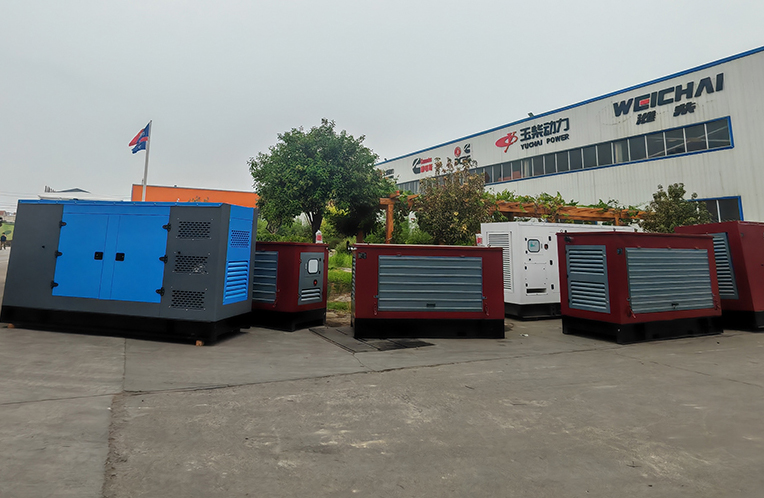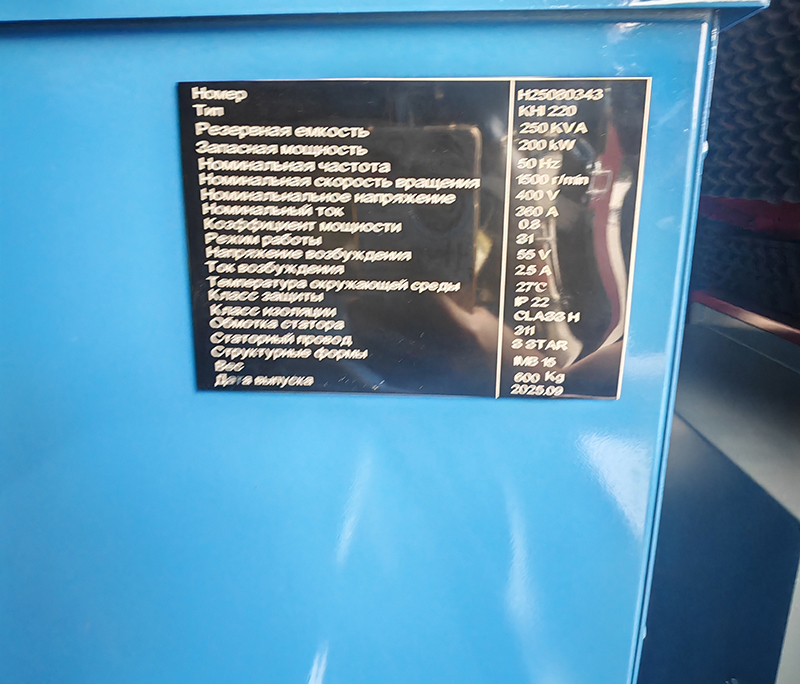Smart Power Supply: Future Trends in Diesel Generator Technology
Release time:2025-10-25 Click:10
In a world increasingly dependent on reliable and uninterrupted electricity, diesel generators continue to play a vital role across industries, from construction and data centers to hospitals and emergency backup systems. However, as global energy demand evolves toward efficiency and sustainability, the traditional diesel generator is undergoing a remarkable transformation. The integration of digital technologies, artificial intelligence, and hybrid systems has ushered in the era of “smart power supply,” marking a new chapter in the diesel generator industry.
Diesel generators, once seen purely as mechanical backup systems, are now being redefined as intelligent power solutions capable of self-monitoring, predictive maintenance, and seamless integration with renewable energy sources. Manufacturers worldwide—especially from China, Europe, and the United States—are investing heavily in smart control systems and data-driven optimization to make power generation more efficient and environmentally responsible.
The Evolution of Diesel Generator Technology
Diesel generators have been indispensable in industrial operations for more than a century. Early models were focused on mechanical durability and fuel efficiency, but modern demands require more than simple power output. Today’s diesel generators are expected to be smart, connected, and adaptive. This evolution is driven by three core forces: digital transformation, sustainability regulations, and market competition.
Advanced sensors, IoT integration, and real-time analytics are now standard in high-end diesel generator sets. These technologies allow operators to track engine performance, fuel consumption, and environmental conditions remotely—reducing maintenance costs and improving reliability. Furthermore, intelligent load management enables generators to optimize fuel usage, extend engine life, and minimize emissions.

Intelligent Power Management Systems
One of the most significant advancements in modern diesel generator technology is the integration of intelligent control systems. These systems use algorithms and data feedback to automatically regulate engine performance based on power demand. For example, when the load decreases, the system reduces engine speed to save fuel and lower noise. When power demand rises, it automatically ramps up generation without human intervention.
Some smart generators now include predictive maintenance software powered by AI. This feature can detect early warning signs such as vibration anomalies, temperature fluctuations, or irregular fuel injection patterns—alerting technicians before costly breakdowns occur. Such automation enhances operational efficiency and ensures continuous power delivery.
Q: How Do Smart Diesel Generators Differ from Traditional Ones?
A: Smart diesel generators go beyond basic mechanical functions. They feature digital monitoring systems, automatic load management, and IoT connectivity, allowing remote control and predictive diagnostics. Traditional generators, in contrast, require manual supervision and lack real-time performance insights.
The Rise of Hybrid Generator Systems
The future of diesel power generation lies in hybridization—combining traditional diesel engines with renewable energy sources such as solar, wind, or battery storage. Hybrid generator systems intelligently balance multiple energy inputs to achieve optimal efficiency and reduce carbon emissions.
For instance, a hybrid diesel-solar system can store energy from solar panels during the day and switch to diesel backup at night or during cloudy conditions. This approach not only minimizes fuel costs but also supports global sustainability goals by lowering greenhouse gas emissions. Many governments now incentivize hybrid energy adoption, making it an economically viable option for businesses.
Q: Are Hybrid Diesel Generators Environmentally Friendly?
A: Yes. By integrating renewable energy sources and intelligent load management, hybrid diesel generators can significantly reduce fuel consumption and CO₂ emissions—making them a cleaner, more sustainable power solution.

Connectivity and Remote Monitoring
Modern diesel generators are increasingly connected through cloud-based management platforms. Operators can monitor and control their units via smartphones or web dashboards, checking parameters such as voltage, frequency, and fuel status in real time. This remote monitoring capability is especially valuable for industries with distributed operations, such as telecommunications and construction.
Additionally, smart alerts and automated reports help managers make informed decisions about maintenance scheduling and fuel logistics. This level of visibility not only improves reliability but also enhances overall energy management efficiency.
Q: How Does Remote Monitoring Improve Generator Performance?
A: Remote monitoring enables continuous data collection and analytics, allowing early fault detection, optimized fuel scheduling, and faster troubleshooting. It transforms reactive maintenance into proactive management, reducing downtime and operational costs.
Emission Control and Environmental Responsibility
As global environmental standards become stricter, manufacturers are developing cleaner-burning diesel engines equipped with advanced exhaust aftertreatment systems. These include technologies such as selective catalytic reduction (SCR) and diesel particulate filters (DPF), which minimize harmful emissions.
Moreover, alternative fuels—such as biodiesel or synthetic diesel—are gaining traction as cleaner substitutes for conventional fossil fuels. Combined with digital efficiency improvements, these trends indicate a future where diesel generators contribute positively to both industrial reliability and environmental sustainability.
Integration with Smart Grids
The integration of diesel generators with smart grids represents another major leap forward. Through digital communication protocols, generators can synchronize with grid supply to provide load balancing, peak shaving, and emergency backup services. In some advanced setups, they can even sell excess power back to the grid—a concept known as distributed generation.
This adaptability positions diesel generators not as outdated relics, but as key components of resilient, decentralized energy networks that can adapt to changing global power demands.
Q: What Role Will AI Play in the Future of Diesel Power?
A: Artificial Intelligence will play a central role in optimizing generator performance. AI-driven systems can analyze real-time data, predict failures, manage loads dynamically, and even learn operational patterns to reduce fuel waste and extend engine life.
Challenges and Future Outlook
Despite their technological progress, smart diesel generators face challenges such as high initial investment, cybersecurity concerns, and integration complexity with renewable systems. However, the long-term benefits—reduced operational costs, extended lifespan, and improved efficiency—far outweigh these obstacles.
In the coming decade, we can expect further innovation in energy storage, digital twin simulations, and modular power systems. These developments will enhance flexibility, allowing diesel generators to function seamlessly within hybrid and fully digital power ecosystems.
Conclusion
The future of diesel generator technology is undeniably intelligent, interconnected, and sustainable. As industries worldwide pursue cleaner and more resilient energy solutions, smart diesel generators are set to become indispensable assets in modern power infrastructure. By combining time-tested mechanical reliability with cutting-edge digital intelligence, the diesel generator of tomorrow will power a smarter and greener world.
Tags: #DieselGenerator #SmartPower #HybridEnergy #IntelligentTechnology #SustainablePower
Hot products
+86 15244567972
Contacts:Jack
